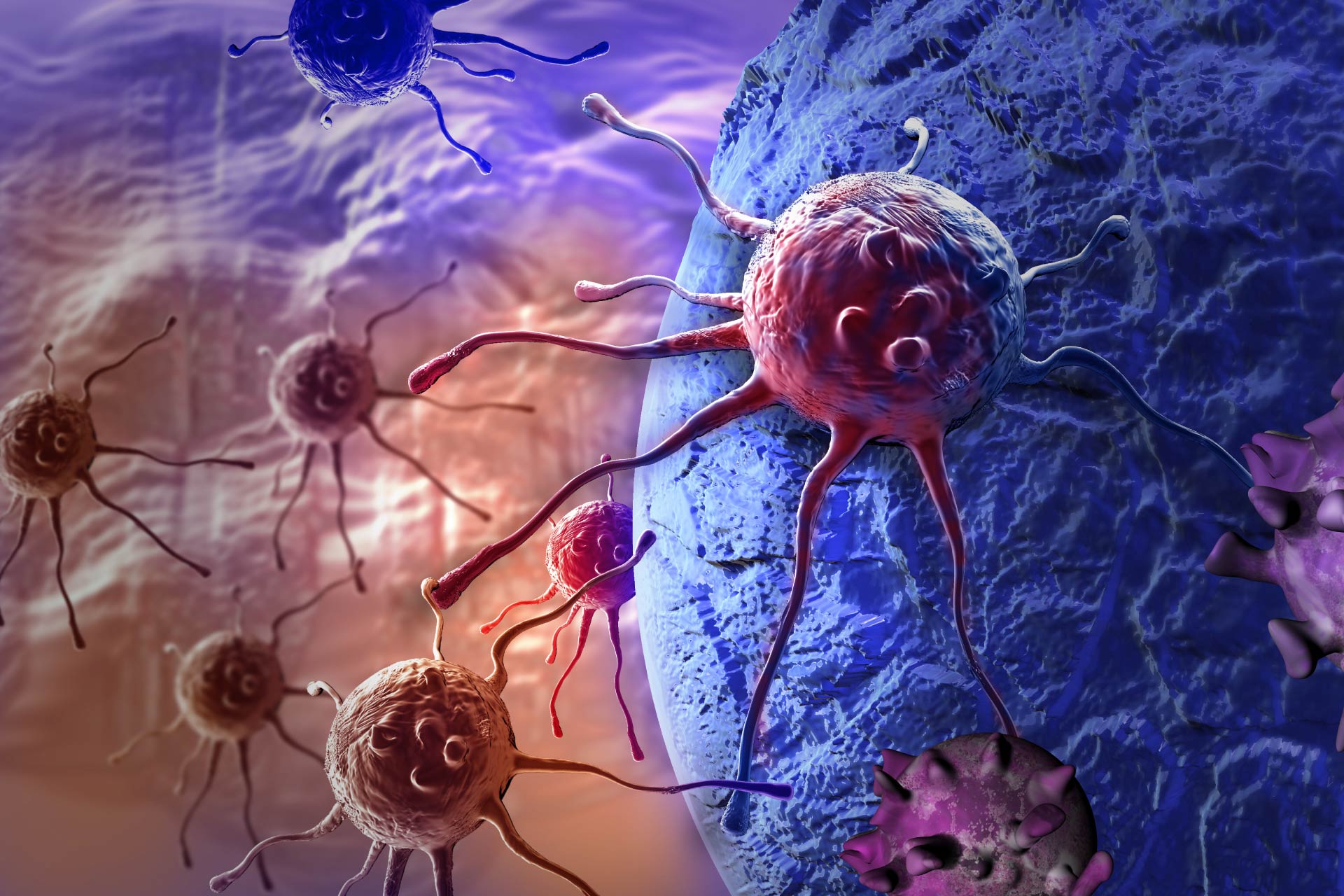• Cancer paradox
• The role of microenvironment
What is already known on this topic
The protein p53 prevents cancer formation, functioning as a tumor suppressor. But when p53 becomes mutated, the protein increases the likelihood for uncontrolled cell division, helping tumors to grow and spread.What this research adds
Working in mice with mutated, cancer-driving p53 proteins in the colon, researchers found that gut microbes promoted cancer growth through the production of an antioxidant metabolite called gallic acid, which is found in tea leaves, oak bark, and other plants. Indeed, in mice fed gallic acid, gut bacteria accelerated the cancer-driving function of p53. Treating the animals with antibiotic to kill off the colon’s microbiota restored the tumor-suppressive activity of p53 in the colon.Conclusion
The findings indicate that gallic acid—which is produced by gut bacteria and is naturally abundant in the colon—abolishes the tumor-suppressive activity of p53, increasing the risk of colon cancer.
A metabolite produced by gut bacteria and naturally abundant in the large intestine increases the risk of colon cancer in mice prone to the disease, a new study has found.
The findings, published in Nature, suggest that the gut microbiota can accelerate the growth of bowel cancers. “Scientists are beginning to pay more and more attention to the role gut microbiomes play in our health: both their positive effects and, in this case, their sometimes pernicious role in aiding and abetting disease,” says study senior author Yinon Ben-Neriah at Hebrew University.
Scientists have known that only 2% of gastrointestinal cancers develop in the small intestine, whereas 98% of such cancers take place in the colon. One key difference between these two organs is that the small intestine contains a few bacteria compared to the colon, which contains a multitude of microbes.
In colon cancer, mutations in a protein called p53 are very common. This protein normally prevents cancer formation, functioning as a tumor suppressor. But when p53 becomes mutated, the protein increases the likelihood for uncontrolled cell division, helping tumors to grow and spread. So Ben-Neriah and his colleagues set out to investigate the role of mutant p53 in colon cancer using genetically engineered mice with mutated, cancer-driving p53 proteins in the colon.
Cancer paradox
The researchers found that in the small intestine, the mutated p53 was actually better at suppressing cancer growth than normal p53 proteins. But when the mutated variant of p53 was introduced into the mice’s colon, the protein promoted cancer spread, as expected.
“We were riveted by what we saw,” Ben-Neriah says. “The gut bacteria had a Jekyll and Hyde effect on the mutated p53 proteins. In the small bowel, they totally switched course and attacked the cancerous cells, whereas in the colon they promoted the cancerous growth.”
To test whether the gut microbiota could turn p53 into tumor blockers in the small intestine but tumor accelerants in the colon, the scientists treated mice with antibiotics to kill off their colon microbiota. After antibiotic treatment, the tumor-suppressive activity of p53 in the colon was restored.
The role of microenvironment
Further experiments showed that the gut microbiota promoted cancer growth through the production of an antioxidant metabolite called gallic acid, which is found in tea leaves, oak bark, and other plants. Indeed, in mice fed gallic acid, gut bacteria accelerated the cancer-driving function of p53.
The findings highlight the role of the microenvironment in determining the outcome of cancer mutations, the researchers say. “Scientifically speaking, this is new territory,” Ben-Neriah says. “We were astonished to see the extent to which microbiomes affect cancer mutations—in some cases, entirely changing their nature.”











